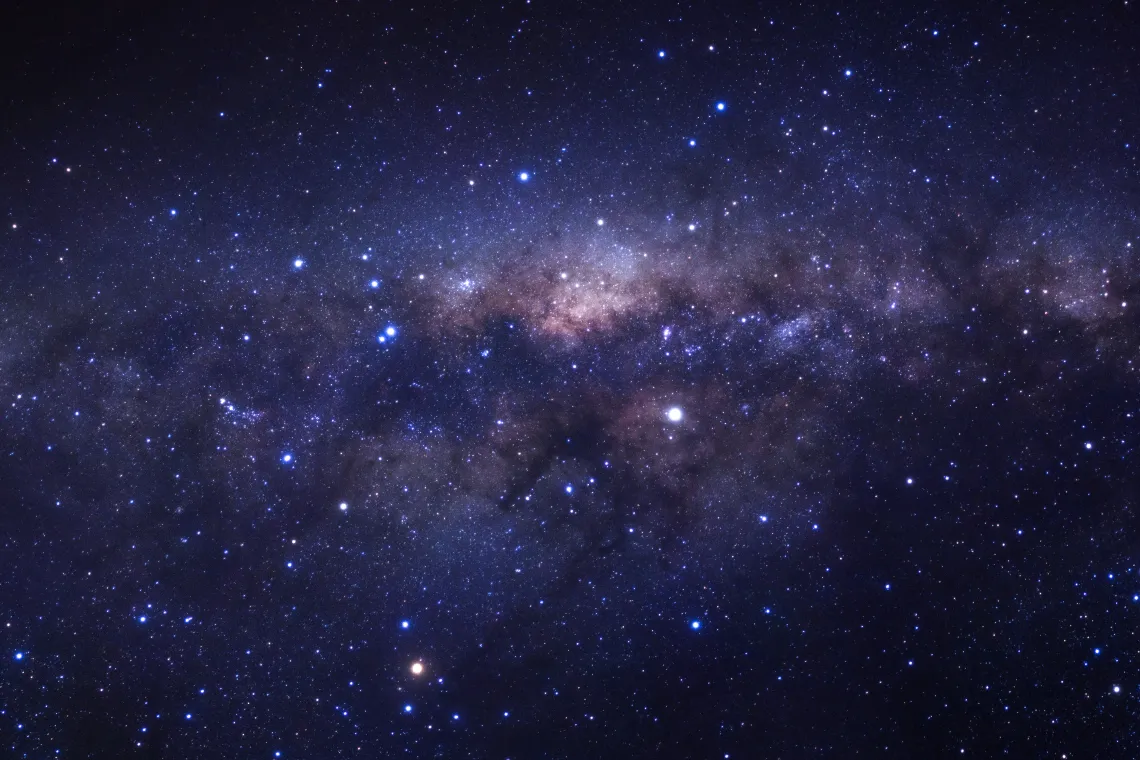New Space Law & Policy Course Explores Frontiers of Science and Law

In the spring semester of 2024, the University of Arizona James E. Rogers College of Law will offer a course on the law of space for the first time.
Drawing on the University of Arizona’s status as an innovator in space sciences, the Space Law & Policy course will be co-taught by Professor Vishnu Reddy of the College of Science’s Lunar & Planetary Laboratory (“LPL”) and Milton O. Riepe Professor of Law & Distinguished Legal Scholar Andrew Keane Woods, who writes about the cross-border regulation of new technologies.
“There’s a huge demand for careful thinking about how law does or should apply in space,” Woods said. “You can think about that demand from several different perspectives. We need scholarship on the issue, our students are interested in the topic, and we need to develop a workforce of lawyers who can understand space and can work at the intersection of space and law.”
Treaties, tourism and more
The course will cover a range of legal subjects, such as the current treaties governing outer space, space mining, the laws of armed conflict, space tourism and more. In addition to addressing complex scholarly questions, Woods also designed the course to train future lawyers interested in the space industry. He noted that companies like SpaceX and the United States military need lawyers who understand both science and law. To that end, Reddy will teach students the basics of astronomy that they need to complement their legal understanding of space.
The three-credit course is capped at twenty students and geared toward graduate students in law or the sciences.
Woods compared space law to internet law, which he has studied extensively. “The internet, like space, is a public commons, a public good, that is international in nature. It is also, however, a place where states have an interest in asserting their sovereignty,” Woods explained. “There are dual use issues, meaning competing commercial enterprises and private business and money to be made, on the one hand, but also, on the other hand, huge national security concerns and military involvement.”
A constellation of talent
The Space Law & Policy course taps into the University of Arizona’s strength in space science, which includes initiatives like the OSIRIS-Rex spacecraft, developed through a collaboration between the National Aeronautics and Space Administration (“NASA”) and the university. In September 2023, OSIRIS-REx became the first United States spacecraft to collect a sample of an asteroid and deliver it to earth.
“We have, on the science side, one of the best constellations – sorry for the pun – of space talent in the country,” remarked Woods.
The college of law also has been at the forefront of discussion on space and the law, including a 2022 conference featuring panel discussions on issues like international agreements governing space and the business of space, as well as a keynote by Alexander MacDonald, chief economist at NASA.
Woods’ enthusiasm for space law reaches beyond the practical legal ramifications. “One of the most exciting things about space law field is it really is an area where you can work on something that truly is at the frontier,” Woods observed. “And there just aren’t that many areas like that.”
